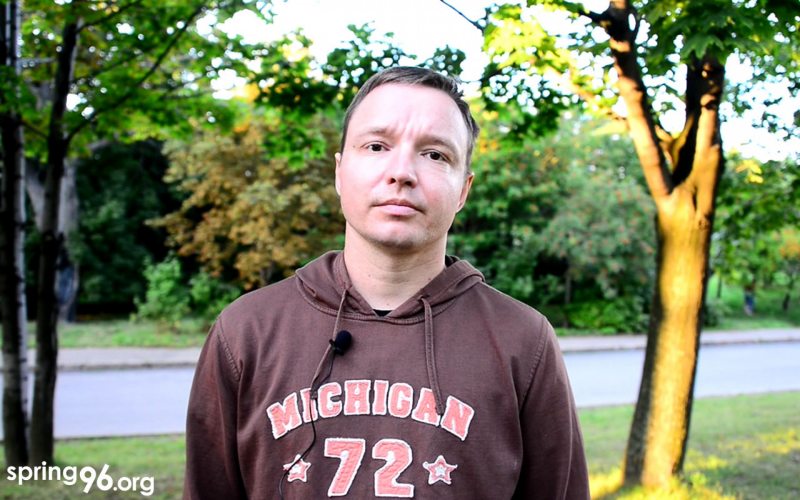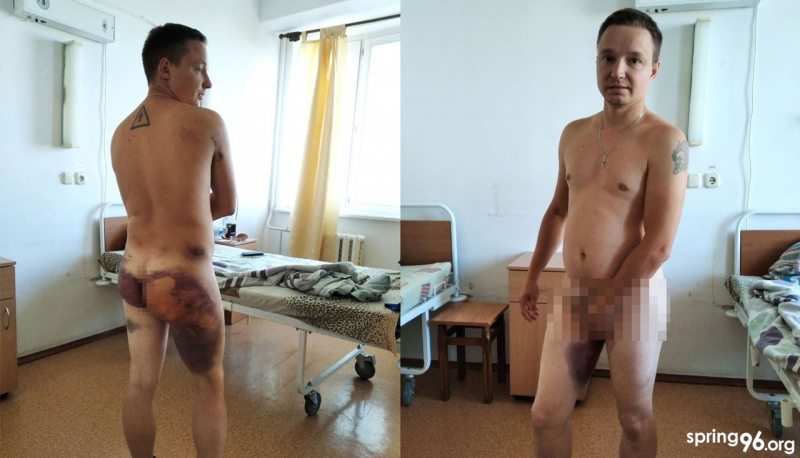"A riot policeman sat on me in the police van and exclaimed: 'Look at my nice chair!'" Survivor stories
The Human Rights Center "Viasna” and the World Organization Against Torture (OMCT) launched a campaign to document cases of torture, cruel, inhuman and degrading treatment of protesters on August 9-13. Some testimonies of people who survived torture and violence will be published on our website as evidence of crimes committed by security forces.
Andrei Viarshenia was brutally pulled out of his car by riot policemen on the night of August 11, when he was driving his friends home past the Riga shopping center. He was being beaten all the way to the detention center and after, until he lost consciousness. The man shared his detention story with "Viasna".
On the night of August 11, Andrei Viarshenia drove his friends home by car. The company was approaching the Riga shopping center. There was a traffic jam at the intersection, and the traffic police inspector regulated the traffic. There were a lot of police officers in black uniform with a triangle with some number on the back.
These officers with guns approached a car in front of Andrei that had Russian plates. They started to pull people out of it, inspect the car and look for something.
"I understood what the situation was like in the country, but I thought that maybe they were looking for some ‘aliens’, and they decided to inspect the people in the Russian car. People were pulled out of cars by force, but for some reason, I was sure that they would not run up to us and we would go further. And even if they would, they would probably just search us, find nothing suspicious and just let us go," Andrei Viarshenia says.
But the law enforcers approached Andrei's car, too, pointed weapons at the men, started pulling them out of the car, ordered them to lie on the ground, and hit the passengers several times. They found out who the driver was and told Andrei to open the trunk. They also took out the phone that the man had left in the car and told him to show them the gallery.
"I unlocked the phone and they immediately started to look through the contents. Meanwhile, I was showing the trunk: there was a perforator, a screwdriver, and other construction tools in boxes. One of the officers in black took out these boxes and, using swear words, demanded to open them.
In general, all communication was humiliating: it was swearing, they used almost no normal words."
On Andrei Viarshenia's phone, they found photos and videos taken on August 9 near the Victory monument. The man said that he did not agree with the election results and went to the action together with other people. He saw stun grenades explode and took several photos and videos that they found in his phone.
"When they saw the photos and videos on my phone, they said, 'Oh, that's it! We've got revolutionaries!' They began to beat up a lot. Then they looked into my backpack – I had a bandage and peroxide, arrhythmia pills – and exclaimed: ‘Look, he has bandages, he has a first aid kit, all packed up!'
I was thrown to the ground and beaten again. Then they dragged me off the roadway, put me on the sidewalk, a policeman stepped on my head, two others stepped on my feet, they tightened my hands behind my back and hit me several more times – someone kicked me, someone hit with a baton. They shouted: 'What don't you, animal, like? You want a change – how do you like such changes? How much did you get paid? Who is your main curator?' That is, they were sure that we were really 'paid'."
They put a baton under Andrei's tied hands, used it as a lever, and put him in a police van in that bent position.
"In the police van, we were ordered to squat and not to raise our heads. If you raised your head, you were beaten at once; if you said something, you got the same result.
I squatted, a policeman sat on top of me and shouted to his colleagues: 'Look at my nice chair.'
He was very heavy and I heard a crackling sound. I said that I couldn't breathe, it hurt and I couldn’t stand it. But he started hitting me in the face with his left hand and said, 'Why do you feel bad? I feel good.'
The car abruptly broke and he fell off me, then hit me several times with a baton and said: 'You're an unstable fucking chair.' After that, I was abruptly turned on my stomach, again someone stepped on my head, legs and began to beat me. Most of all I was beaten on my back and buttocks. I was being beaten for a very long time, at first, I screamed and then yelled in pain."
For several minutes, Andrei Viarshenia was beaten without stopping; other detainees were told to sing the national anthem of Belarus.
"One of the riot policemen began to point a baton at my buttocks. I was wearing jeans and at that moment I didn't realize what was going on. Now, having listened to people being raped with batons, I understand that they wanted to do the same to me.”
When the van stopped, the detainees were told that now they had to run out of it and shout the phrase: 'I love riot police.' Those who would not do it, would get hit with a baton, those who would shout loudly, would not get beaten.
"I ran out and yelled at the top of my voice that I loved the riot police because I didn't want to be beaten again. But I was beaten anyway. We had to run through the lines of police: someone kicked me, someone punched, someone hit me with a baton. And then I found out that they beat everybody regardless of whether you shouted something or not.
We were transferred to another police van: I got into a small section with five other people. The last person did not fit in, they just started to beat him on the legs with a baton and squeezed him into the box. We were like sardines in a can: we couldn't move. I saw a grating on the ceiling and understood that it was an air vent. When the car started, the air entered the box, but for six people it was not enough. My eyes dimmed and for the first time, I lost consciousness right there in this "box". I woke up from being thrown out of the police van on the ground at the detention center in Akrescin street and beaten with batons that was supposed to wake me up. Then they grabbed me by the arms and led me to the fence; all that was accompanied by swearing and beating, humiliation and insults. Before that, I managed to remove the tie and my hands were free, but I was told to kneel, put my hands on the wall, and lean my forehead against the fence."
Andrei Viarshenia does not remember exactly how long he and other detainees stood like that, then they were taken for inspection and forced to move around on their hunkers. The man had his buttocks and lower back batonned, he could not feel one of his legs.
"When I tried to move on my hunkers, I fell a few times. Then I tried to crawl, I was beaten on the back with a baton because I did it too slowly. Someone grabbed me by the scruff, dragged me on the ground, and told me to stand at the wall. A woman came up to us and asked for our surnames and place of work. My eyes dimmed again and I fainted. I woke up when a local doctor put ammonia to my nose. I was prostrate. They asked if I had any disease, I said that I have atrial fibrillation, that I took pills and felt bad. They didn't have any pills I needed; I was allowed to sit on the ground.
I heard inhuman cries inside the detention center, screams and baton hits. At first, these cries were loud, then they stopped. It was hellish."
Andrei Viarshenia threw up, he lost consciousness again. He was moved to another place where the detainees who could not walk or even move lay.
"An ambulance arrived, they brought me into it, my leg was hanging like a rope. They took me to the emergency care hospital and I was diagnosed with medium severity head injury, blunt abdominal trauma, extensive bruises of the buttocks and back. The ultrasound found blood masses near the femoral artery."
The man is on treatment in the hospital, his car is in a penalty parking lot with a dent on the passenger door and broken windshield.
"I could never imagine that I would shrink from any man in uniform. My attitude towards the policemen was neutral up to that moment. Now any person in uniform causes me fear and disgust."
More stories of people who survived police violence and torture:
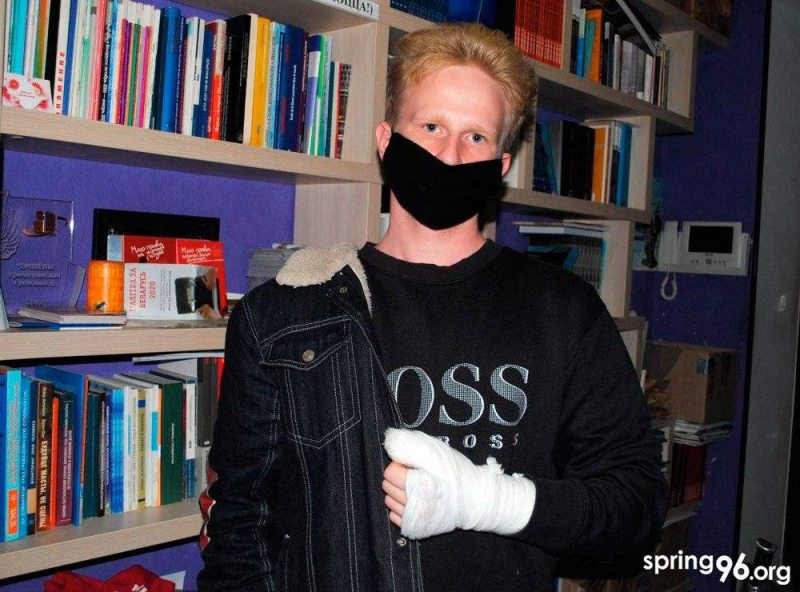
"They threw my skateboard away and told me I feigned a broken arm." Survivor stories
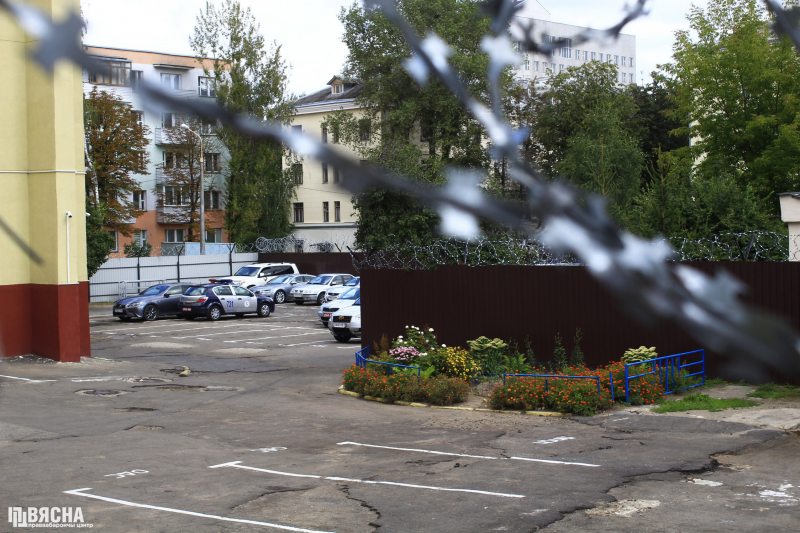
"I had to take down my pants and stand in my underwear in the middle of the hall." Survivor stories
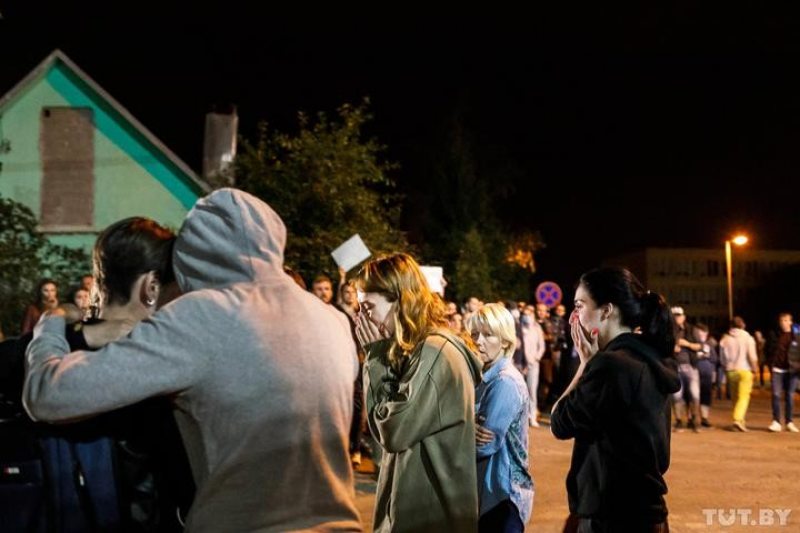
"Riot policeman took another baton and said: 'I wanted to be a drummer all my life.'" Survivor stories
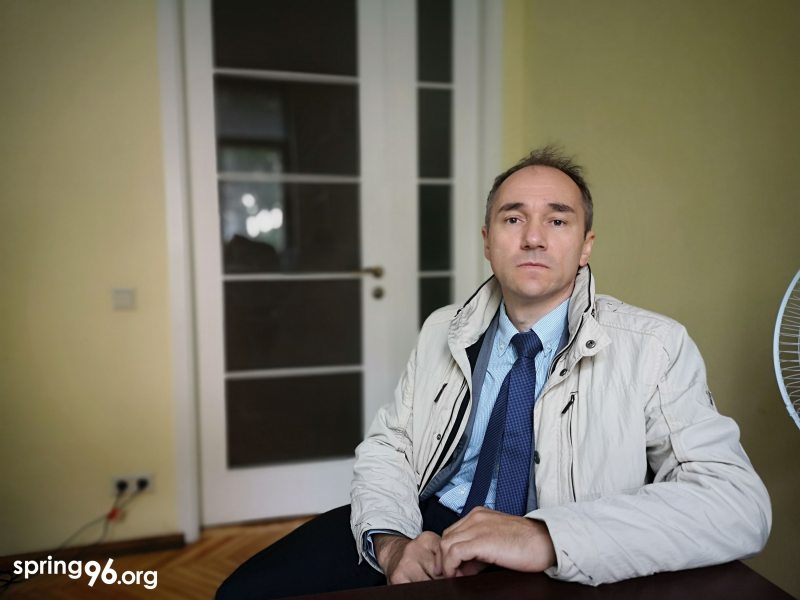
"They broke my ribs and found me guilty." Survivor stories
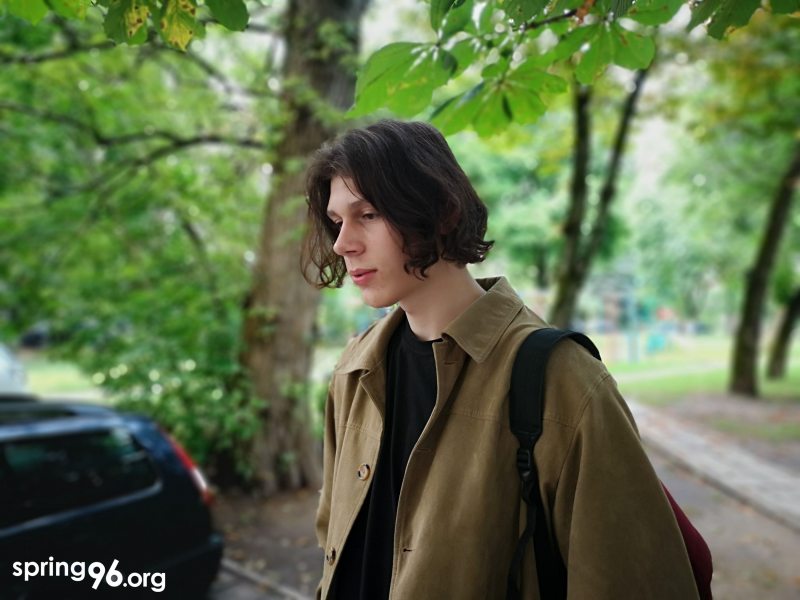
"When they looked at my ID, the beating became softer." Survivor stories
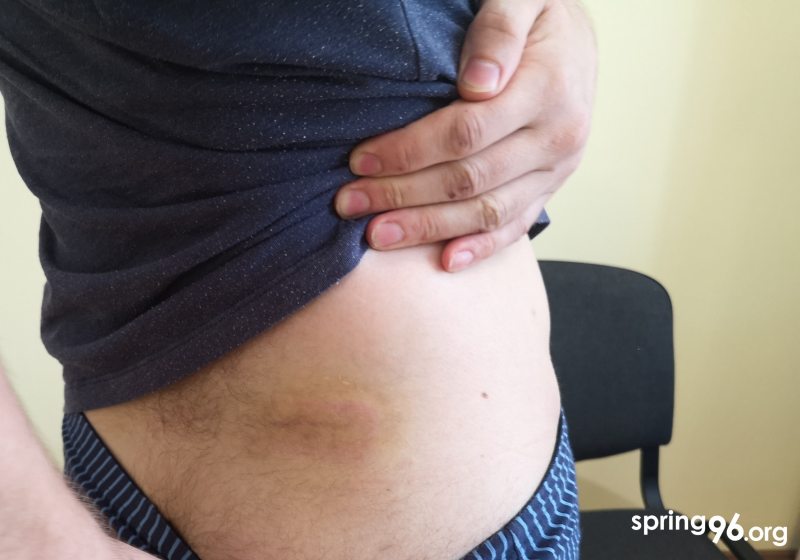
Rape threats and "shared responsibility". Survivor stories
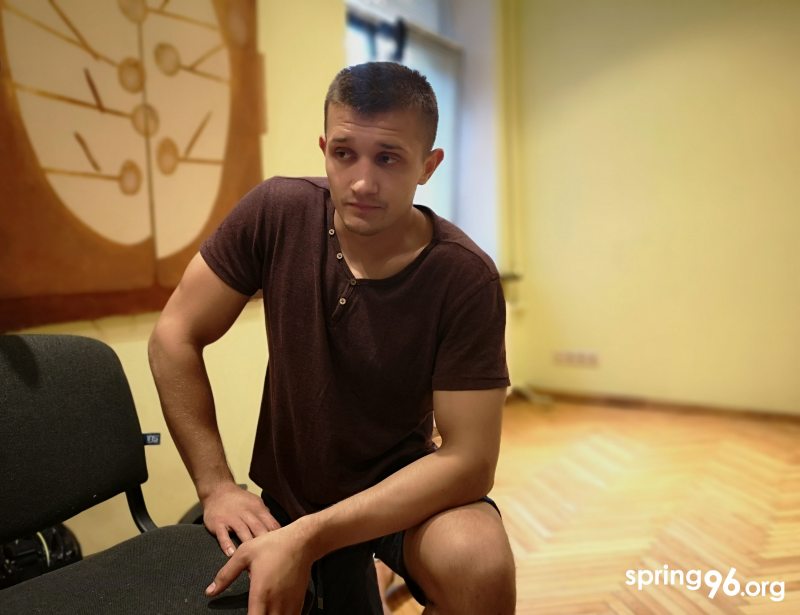
"You have thrown Molotovs!" they said and hit us with a Taser." Survivor stories
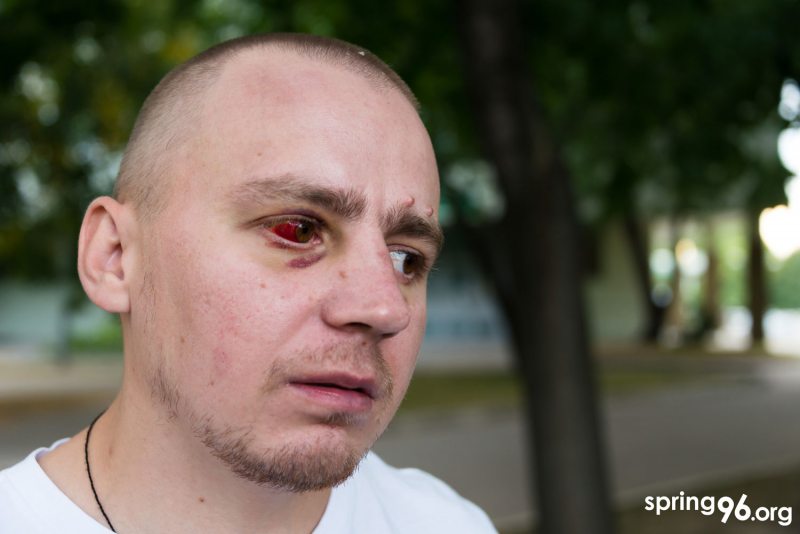
"They started beating me again and said: 'This is a refill for you!'" Survivor stories
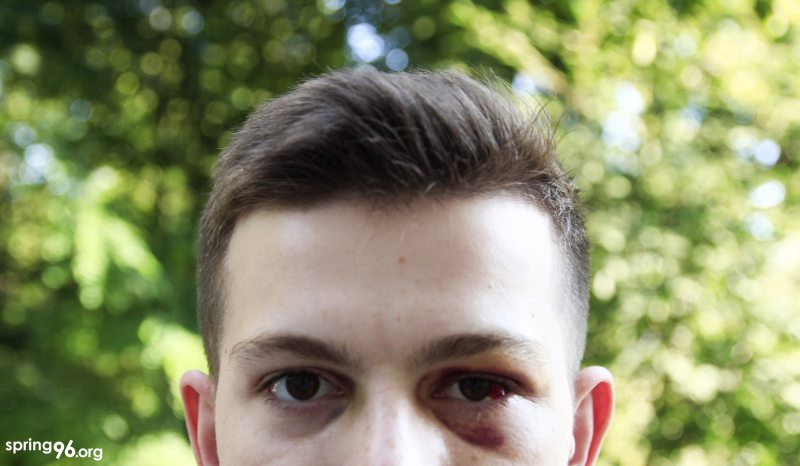
"A paramedic came and started beating people." Survivor stories
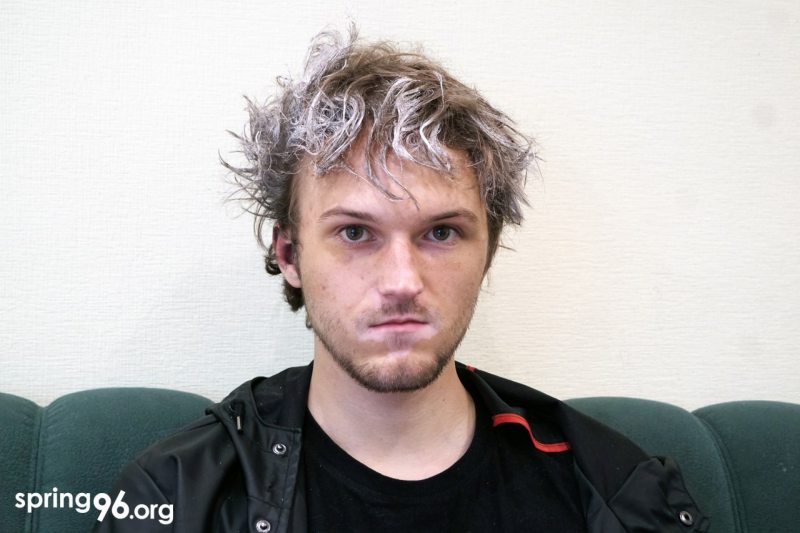
"White paint was poured on my head. It was like a sign to beat me harder." Survivor stories
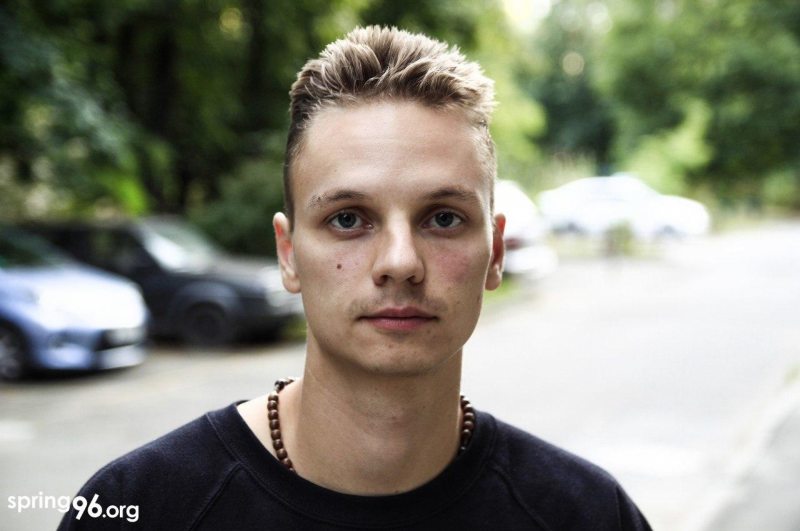
"One of them beats you and the other aims at you with a machine gun." Survivor stories
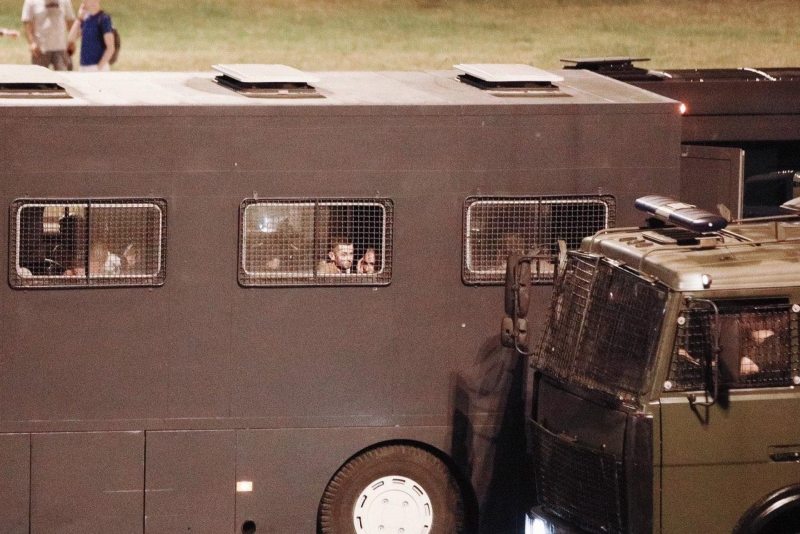
"They took away my bra with a breast prosthesis." Survivor stories
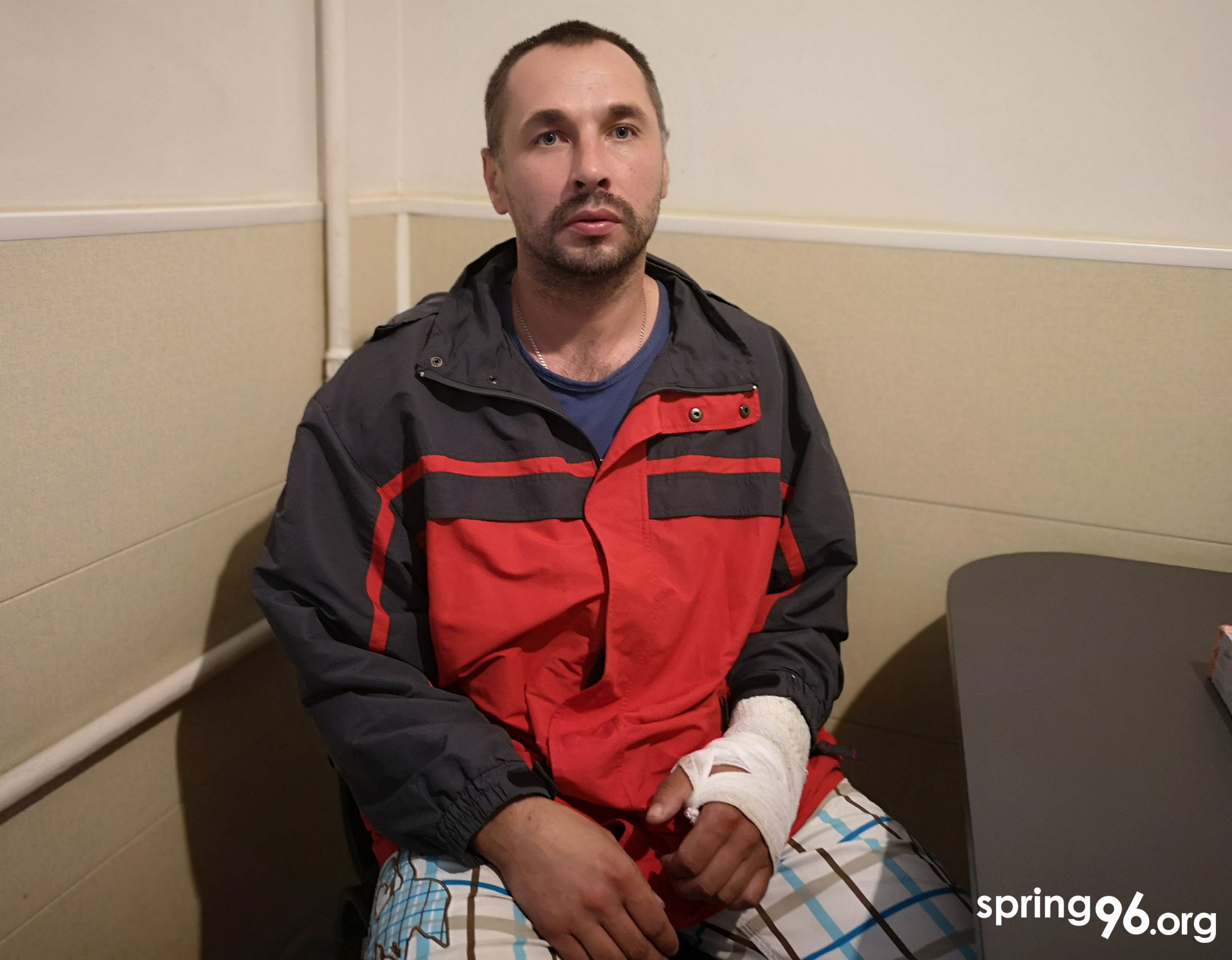
"Road police officers broke my arm during detention." Survivor stories
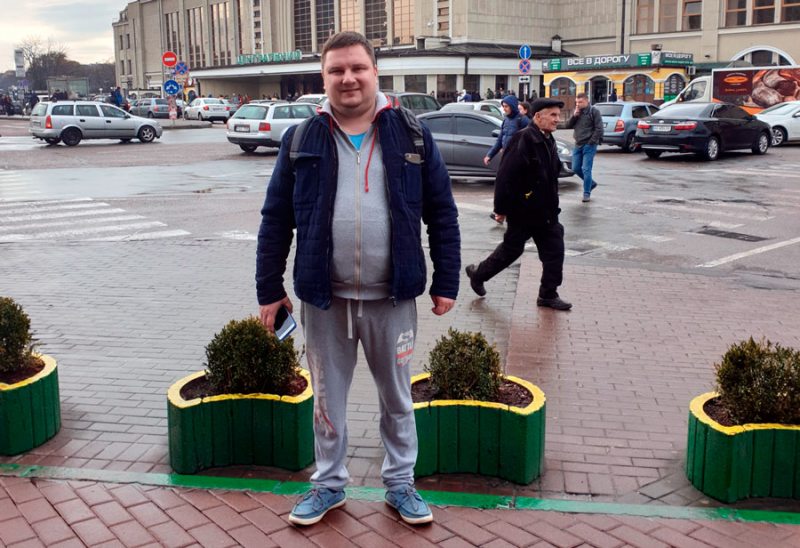
"I was lucky to be a journalist and to have my kidneys thrashed previously." Survivor stories
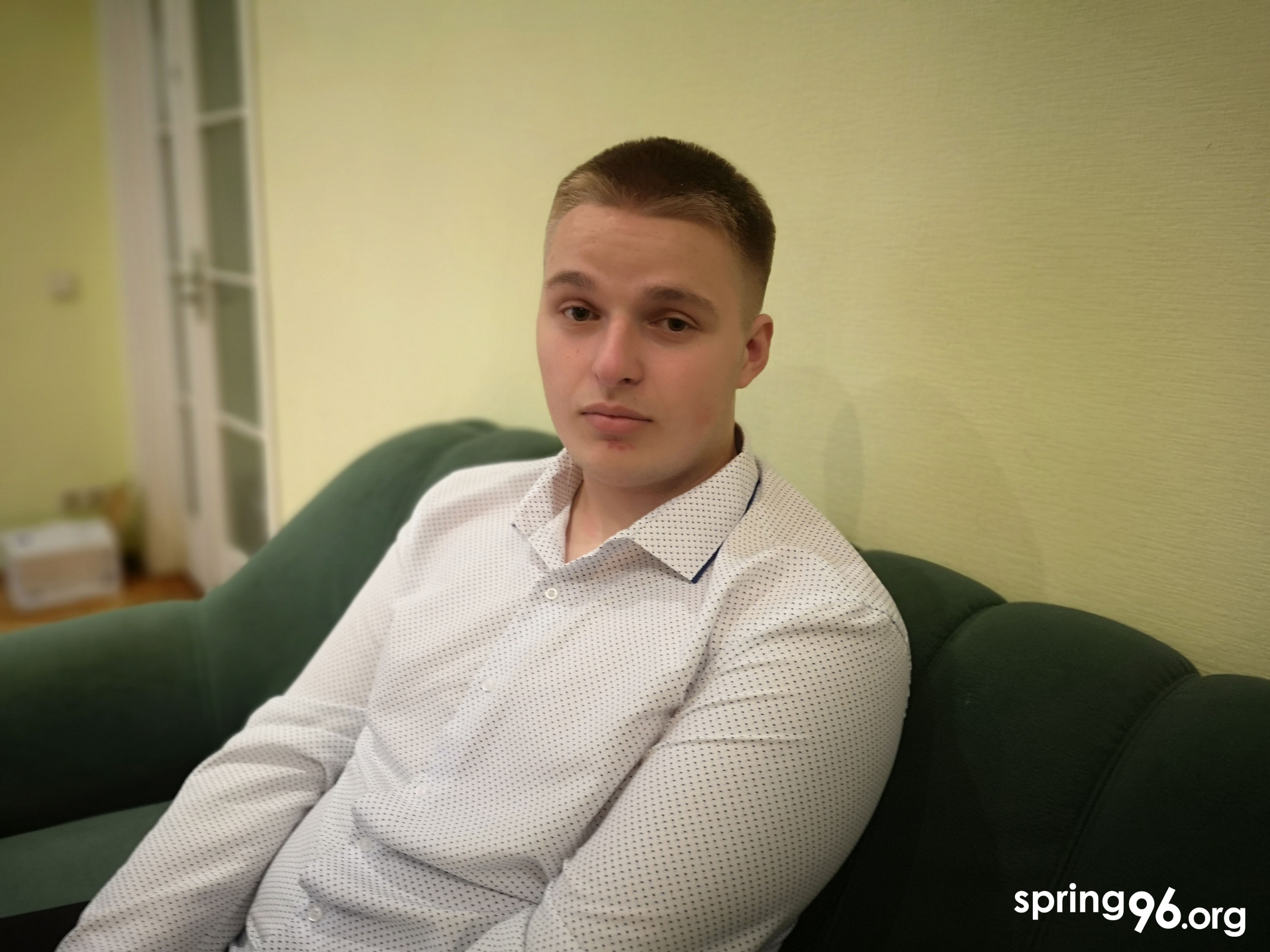
“We will shoot you and you will never be found.” Survivor stories
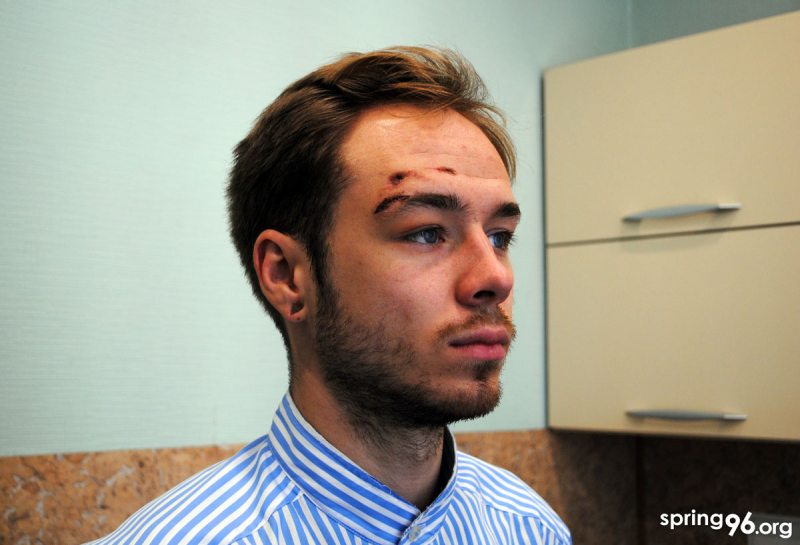
“We were trampled in the police bus.” Survivor stories
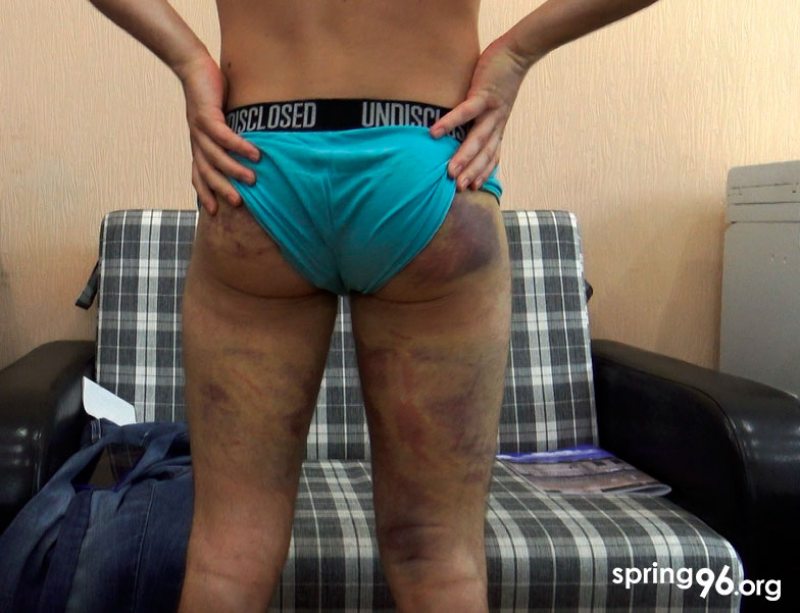
“Now we’ll show you how to s..t your pants." Survivor stories
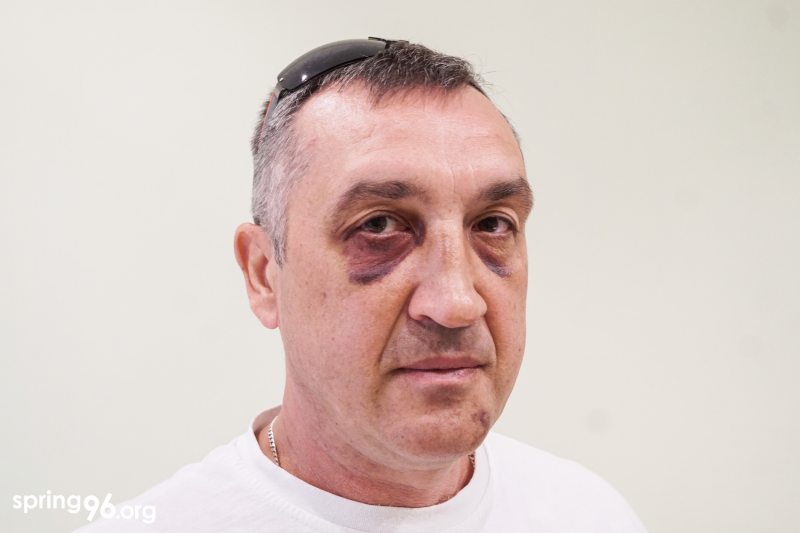
“So you are for Tsikhanouskaya?” Survivor stories
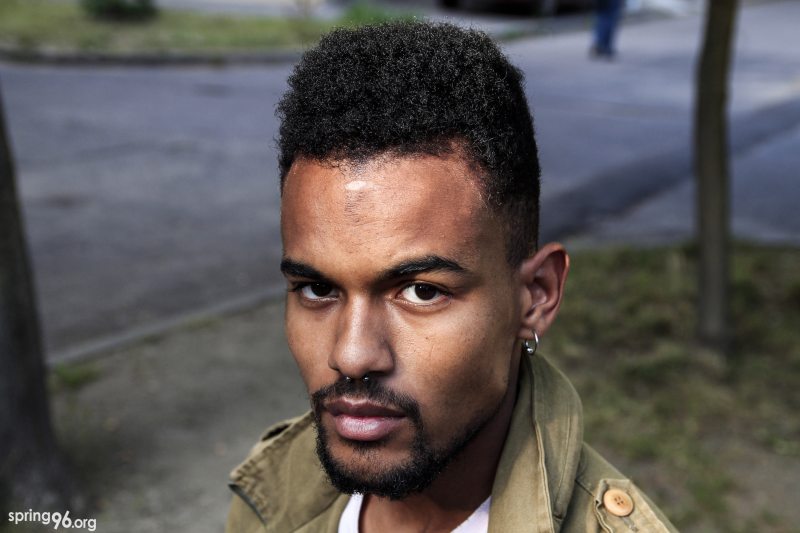
"Officers abused me all the time because I’m black." Survivor stories
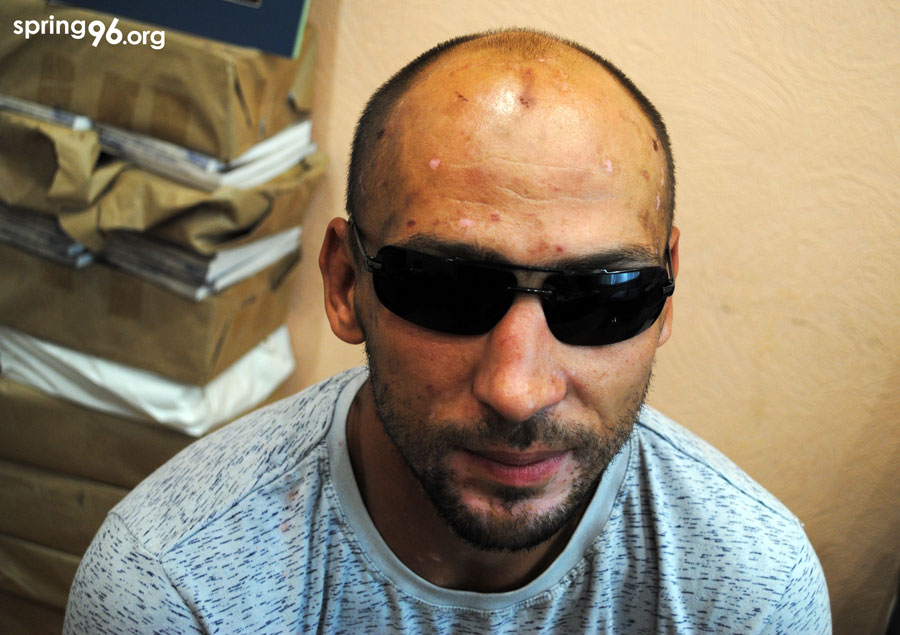
“They kicked me in the head with their police boots.” Survivor stories
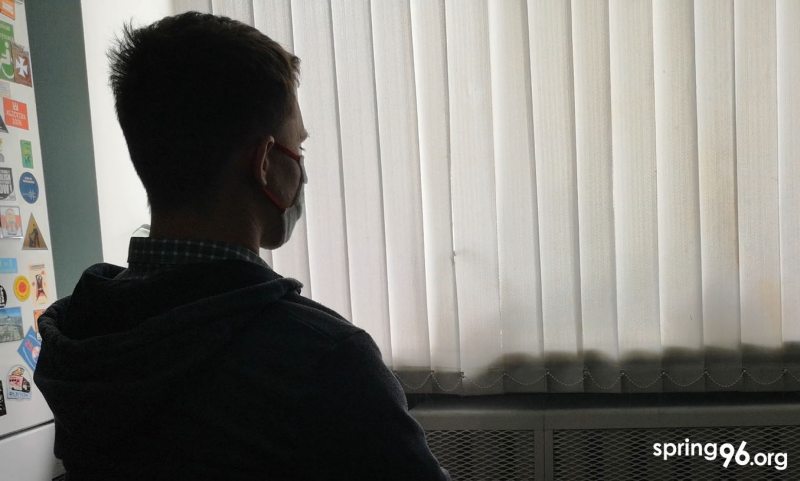
“People were screaming every night.” Survivor stories



